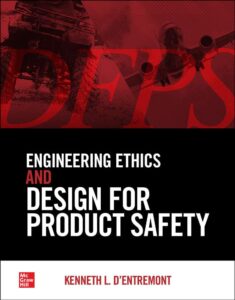It is difficult to get a man to understand something when his salary depends on his not understanding it.
—UPTON SINCLAIR
I, Candidate for Governor: And How I Got Licked,
Ch. 20 (1935)
Engineering Ethics
An engineer who is behaving consistent with an engineering code of ethics, such as that of the National Society of Professional Engineers (NSPE) is practicing “engineering ethics.”
In particular, the NSPE’s first Fundamental Canon:
Engineers, in the fulfillment of their professional duties, shall:
- Hold paramount the safety, health, and welfare of the public. [Emphases added]
Applied Engineering Ethics
Because a generic code of engineering ethics is vague to the practicing design engineer, additional “distillation” is needed. There may well be losses during the process.
The author’s Four Rules of Applied Engineering Ethics are listed below:
- Work hard
- Do the right thing–be able to sleep at night and look in the mirror each morning
- Make managers and executives earn their salaries
- Do NOT go to jail!
These rules indicate that ethical responsibilities exist not only for the engineer.
Responsibilities also exist for the engineer’s employer. (See In the Media.)
The book also takes on the questions:
- How does a priority differ from a value–and why does it matter?
- Is it possible to teach ethics to engineering students and engineers?
- To whom does the engineer owe allegiance?
- When is a product “safe enough?”
Additional discussion of engineering ethics and applied engineering ethics is found in Chapter 3 of the book.

© 2024 K.L. d’Entremont